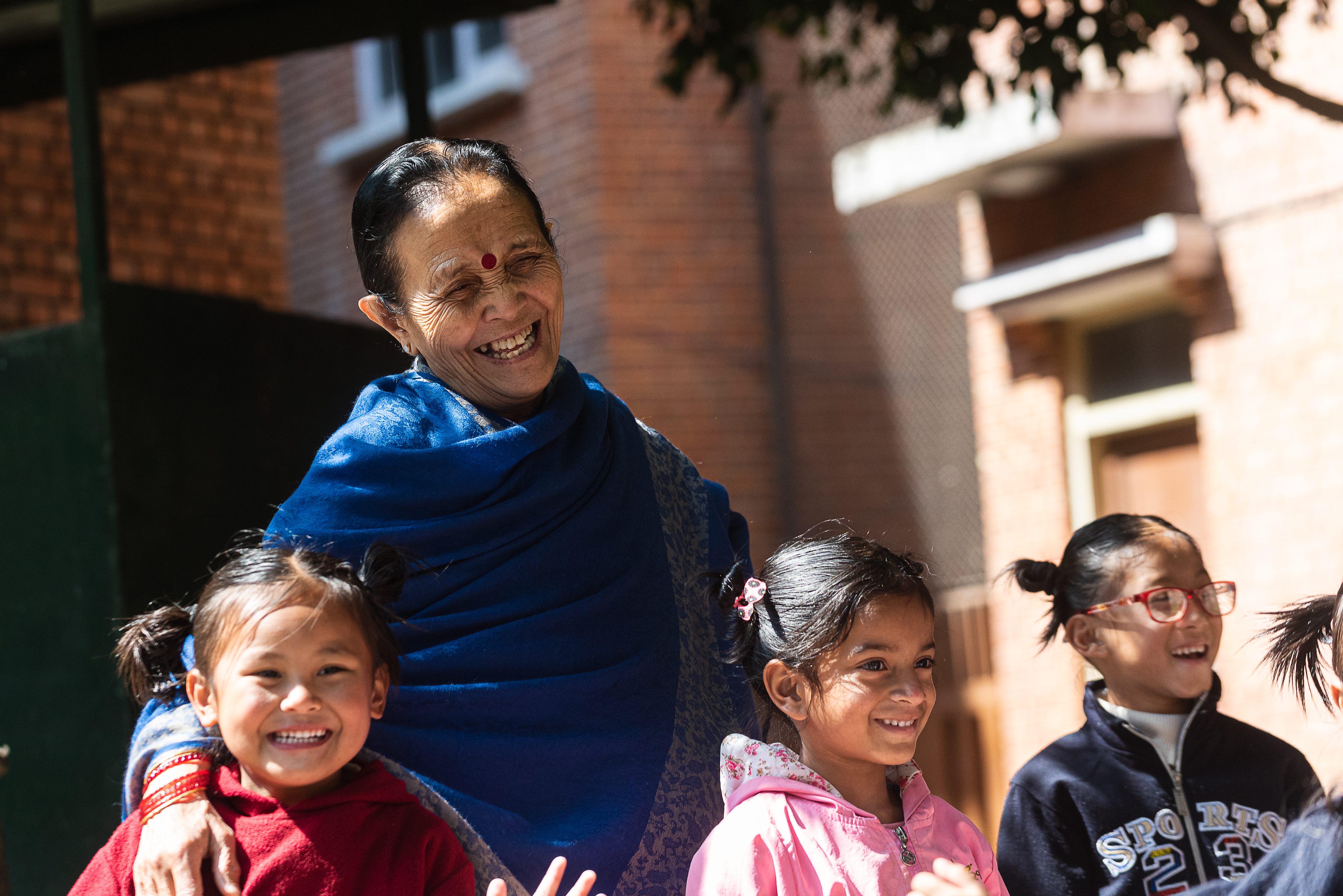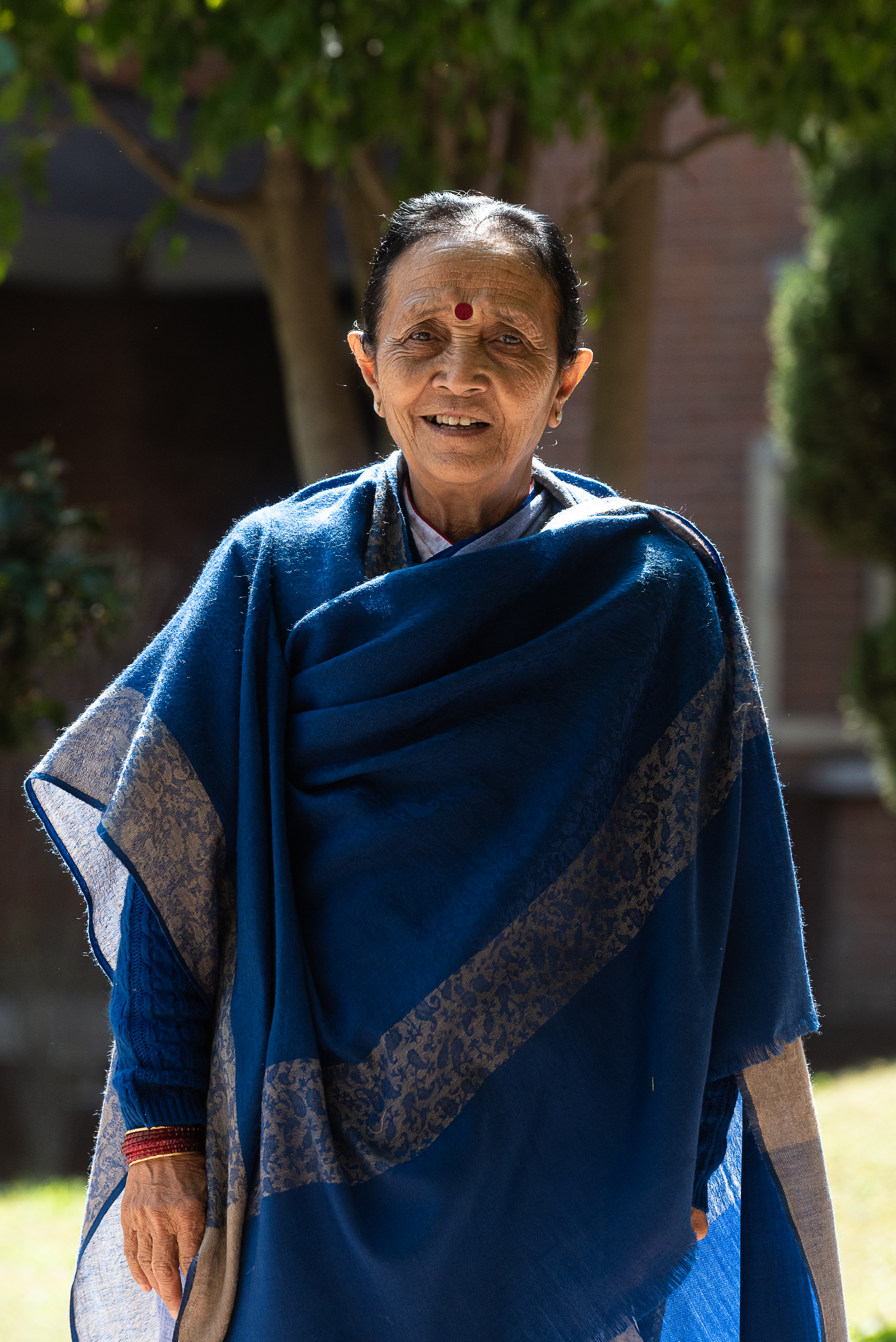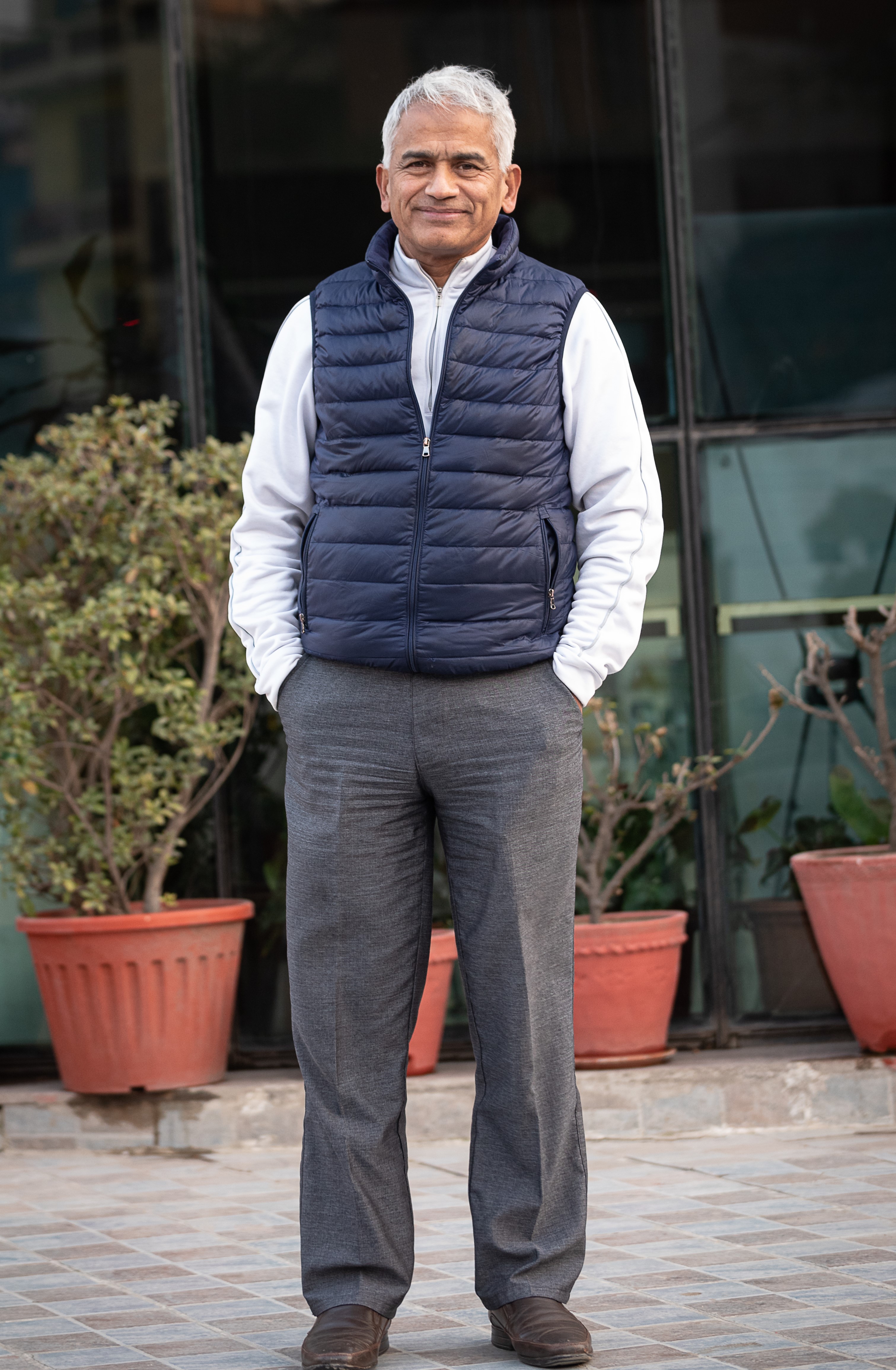My Vision for Nepal | Equal respect for all genders: male, female and queer
Equal respect for all genders: male, female and queer
Three ways to realize the vision:
1) Greater inclusion of the LGBTIQA+ in state mechanisms.
2) Going beyond token representation by enacting systemic changes.
3) Fighting patriarchal mindset from the primary school level up.
Over the years, Nepal has witnessed many movements for gender equality and they have worked to an extent. But there is still a long way to go to create a gender-equal society. In our society, gender is still a binary subject: there are males and there are females. The gender equality movements too have by and large focused on the rights and equality of women. But what about securing the rights of the LGBTIQA+ community?
Coming from the Sherpa community, whose representation is negligible in state bodies, and being a female, I have faced several gender-based discriminations. What must the LGBTIQA+ community—tortured by even their family and society—going through? I am not much-educated on their movement, but comparing the situation of my community to theirs, they fare a lot worse. We must thus seriously think about the rights of LGBTIQA+ people. So my vision is to see Nepal as a country truly free of gender discrimination, a country that also acknowledges the rights and identities of LGBTIQA+ people.
There are many non-queer people who understand the issues of LGBTIQA+ community, but only queer people have experienced the problems for themselves. So it must be them—not non-queers—representing their community in state bodies. The Nepali society largely does not know understand LGBTIQA+ issues. Many people still think being a queer is abnormal. We should deal with this ignorance through education. Unless the curriculum is changed, right from the primary level, and the children are taught about gender in a proper way, including about the LGBTIQA+ community, it is difficult to change the way our society views the queer community.
We should also strive to build a society where women’s representation is actively encouraged. Gender-friendly policies alone will not suffice. If we look at the laws, Nepal is doing well to ensure women’s participation in government bodies, but their implementation is poor. Those in power have reduced the issue of gender equality and representation in state bodies to tokenism.
The law makes women’s representation in state agencies mandatory, but such inclusion has become a matter of formality. Women candidates are picked randomly and they have little knowledge about their jobs. Moreover, they have no say in policy- and decision-making. This culture of tokenism is not limited to women representation but also evident in the inclusion of marginalized communities.
In various meetings and conferences, women and people from marginalized communities are included just to show that they are inclusive and avoid controversies. But we must realize that tokenism will not eliminate our society’s patriarchal structure.
The patriarchal mindset is so entrenched in Nepal that even some women hold and profess antiquated views. Such women will never support female issues when they reach positions of power. We have to understand that even when a mother forces her daughter to marry against her will, her thought process is being governed by a patriarchal mindset.
Women are often judged by their physical appearance, personal life, and other arbitrary parameters, but never by their knowledge and skills in respective fields. Single and divorced women are always under suspicion. We need to normalize divorce and singlehood because it’s up to an individual how he or she chooses to live. These personal preferences should never come between their social and professional life. If a person can be happy single, then that should be fine.
As I work against gender-based violence, I have seen many cases of women continuing to stay in unhappy marriages and tolerating violence from their partners. This is because our society does not treat divorced women with kindness and empathy. Some women don’t want to divorce their abusive husbands out of fear that it might harm the life of their children. This is all because of the way our society views divorce and single women. We don’t take into account women’s wellbeing. We don’t think about the psychological effects on children who witness their fathers acting violently against their mothers.
Our patriarchal society will not accept changes to the established order and norms, but this is precisely why we must continue to fight to build a just and equal society.

Quick Questions:
A book you want to recommend to others.
Nandini Krishnan’s ‘Invisible Men: Inside India’s Transmasculine Network’
What is happiness for you?
A feeling of self-completeness.
A quote you live by?
‘Be yourself.’
My Vision for Nepal | Economic growth and socio-economic development
Economic growth and socio-economic development
Three ways to realize the vision:
1) Invest in agriculture, manufacturing, infrastructure and human-resource development.
2) Strengthen institutional capacity at all levels of government.
3) Enforce the rule of law for strong, effective and fair public administration and good governance.
After decades of political turmoil, Nepal entered a new political era with the promulgation of a new constitution in 2015. The constitution prepared by the elected representatives provides extensive fundamental rights reflecting popular aspirations and envisages an egalitarian and just society by adopting a federal system with three tiers of government. Now that we have a system accepted by all, the focus should be the constitution implementation and meeting of our development goals.
Nepal, which is currently categorized as a ‘least developed country’ (LDC), aims to attain the ‘developing country’ status up to 2026 and the ‘middle-income country’ status by 2030. We have also pledged to achieve 17 UN Sustainable Development Goals (SDGs) by 2030. We were able to meet the Millennium Development Goals within the 2015 deadline. We also expect to meet the SDGs and elevate the country from the LDC status on time while honestly implementing the constitution.
While implementing it, we should also be making prudent investments to spur economic growth. Agriculture is our crucial sector where we need to invest to boost production and lower our agro-import bills. Nepal must invest in new farm technologies to raise productivity and introduce high-yielding and high-value crops to increase national production and income. We can substitute and reduce imports by raising our export capacity with cereal crops, vegetables, fruits and herbs.
Our investment should focus on agriculture, manufacturing, infrastructure and human development. We should also welcome and encourage foreign investment and development assistance in these sectors. Nepal’s poor transport and energy infrastructure has resulted in high transport cost and low electricity consumption. We should come up with ways to address these problems and thus contribute to developing agriculture, industry, tourism and human development sectors.
We can, for example, substitute fossil fuel imports with clean energy for internal consumption and export. Nepal has the potential to be a clean energy powerhouse of South Asia. More investment in clean energy and agriculture could raise our export capacity and minimize the high annual foreign trade deficit, which at present is almost one-third of our GDP.
Also read: Anuradha Koirala: Zero trafficking of Nepali people
Nepal should also strengthen the institutional capacity with administrative reforms at all levels, particularly at subnational governments so that they can successfully carry out their responsibilities. There is a need to reduce recurrent expenditure and raise capital expenditure, resulting in greater productivity and national income and improved institutions.
We have had a high fiscal deficit with increased recurrent expenditure in recent years. This has led to big internal public debt equivalent to about five to six percent of the country’s GDP annually. But capital expenditure is low even at the federal central level: only around 10 percent of the total public expenditure in the first six months of the current fiscal year 2021-22. We need public financial management reforms to address these problems.
Sustainable, sound and prudent fiscal management is necessary to ensure austerity in administrative spending and to plan budget and execute development programs. Reforms are required in public financial management with improvement in planning, formulation and executive phases, including the medium term expenditure framework and accountability at each level of government, if we are to effectively deal with under-spending of capital and poor expenditure productivity.
Growth differences among countries often depend on nationwide factor productivity. Productivity growth in turn depends on technology, infrastructure quality, manpower capacity and business climate. So there is a need for expansion of manufacturing and agriculture sectors and generation of more skilled human resources. Skills training for domestic workers is required to create jobs in domestic agriculture, industry and construction sectors in order to substitute large-scale foreign laborers in these sectors.
Nepal also needs to improve the quality of governance. For this, the country should have strong, efficient and well-functioning public institutions to enforce the rule of law and raise productivity. Administrative institutions should not suffer from favoritism based on partisan prejudices. Selection of managers and staff members should be strictly based on merit and professional competence.
The emphasis should be on sustainable development rather than populist approach for short-term political gains. It is vital to have strong, effective and fair public administration to enforce the rule of law, and upgrade governance quality and management ability to ensure optimal use of public resources. This in turn will help us in our quest for economic development and social justice.

Liberal economy not against socialism
Nepal’s constitution envisions a socialism-oriented country. There are some misinterpreted rumors calling liberal economy an antithesis to socialism. But liberal economy is also a path to socialism, and it helps create jobs, increase national income and reduce poverty.
Even pro-communist nations like Russia and China have adopted liberal economic policies, encouraging private investment and privatizing state-owned industries to increase growth rate, revenues and overall development. Ever since we adopted liberal economy, the lifestyle of Nepalis has improved. To date, every government of Nepal has generally accepted this economic model. It is the implementation part where we have been lagging.a
My Vision for Nepal | Zero trafficking of Nepali people
Zero trafficking of Nepali people
Three ways to realize the vision:
1) Enforce the constitutional provision of free and compulsory education.
2) Create jobs in our own country.
3) Do more to ensure gender equality.
Since I established Maiti Nepal in 1993, my vision for Nepal has been the same: to shut this organization down. By that I mean I want to eliminate human trafficking from the country.
Many cite poverty as the reason for trafficking, but I don’t buy that. For me, Nepalis are not poor. True, we are not rich either, but many of us are hardworking people who just want a decent and dignified life.
The explanation that poverty is causing human trafficking is facile. Rather, lack of education and jobs, and gender inequality are responsible for human trafficking in all its forms.
So we, as a nation, must strive to educate all citizens, create jobs and ensure gender equality to stop human trafficking, which is a big stain on humanity.
Nepal should aim for 100 percent literacy, which could be done by guaranteeing free and compulsory education.
The new constitution provides for free education up to higher secondary level in government schools. But I don’t see that happening anywhere. Our organization has admitted many children in government schools in different parts of Nepal and at the end of the year, we invariably get a raft of receipts from these schools. Where is free education then?
The government must strictly implement the free education provision and ensure every child goes to school. Many people would not send their kids, especially daughters, to school even if the education were free. Those parents and guardians must be fined. Holding them accountable is the only way to ensure that all girl children are educated.
To ensure every child goes to school, local governments could hire and deploy monitoring officers. This will create jobs, no matter how small.
For long, girls and women in Nepal have been victims of trafficking, and unemployment contributes to this. If we could create enough jobs in Nepal, trafficking cases would be drastically reduced.
With no jobs at home, many young women have no option but to go to foreign countries for employment. In the process, there is a high chance of them being cheated and trafficked. Even men are becoming victims of labor trafficking—all due to lack of jobs in the country.

Another urgent issue is gender disparity. In Nepal, there are more women than men, but then there are fewer women in decision-making levels. How many federal ministries are handled by females right now? Six. And lack of female representation is not limited to government agencies and political parties. It runs across the board. We can’t expect an equitable and inclusive society so long as those in the leadership are not committed to ending gender disparity.
It will take time to build a country where education is free for all, job opportunities are plenty, and women have equal rights and representation. But that is not to say we should ignore immediate steps we could take to fight human trafficking. In fact, we should be doubling our efforts. The government for one should actively monitor and cut off national and international trafficking routes.
Our open-border arrangement with India is vital for trade and economy, but it also helps traffickers. Anyone can cross the border without any documentation. As a result, girls and women are easily smuggled across the border. They either land in Delhi or get transferred to other parts of the world like Saudi Arabia, Syria and Lebanon to work in slave-like conditions.
Maiti Nepal works closely with Indian authorities and social organizations to stop trafficking. Over the years, we have managed to curtail traffickers using the Delhi route, but they have not stopped. Of late, they have been found using routes in eastern India and even Sri Lanka to transport Nepali women. Our organization recently rescued 135 trafficked victims from Manipur in eastern India.
It is a huge problem and we must find solutions from within the country. We must discover the places where girls and women are susceptible to trafficking and cut off trafficking routes within Nepal.
Earlier, traffickers used to target girls and women in Sindhupalchok and surrounding districts. Now they seem to be more active in and around Sindhuli. Locations and routes have changed, but trafficking itself continues.
There is also the problem of internal trafficking, whereby young girls and women are forced into labor and prostitution. It is the state’s duty to stop that.
Those into human trafficking lack humanity, morality and compassion. A few years back, I was attending an event on the occasion of International Women’s Day in Sweden. Some ministers and police officers were also in attendance. During this event, a man declared that he was from Nepal and he trafficked women for sex. He made this announcement rather proudly without any hint of contrition. We caught him then and there. Such is the mentality of traffickers—no empathy at all. We can change this only through education.
There is no problem with our trafficking- and prostitution-related laws. It is the implementation part that is weak. If we are committed to make Nepal a trafficking-free country, there is no reason we cannot achieve it.

Quick Questions:
1. What gives you the greatest happiness?
My work. Preventing Rescuing children and women from becoming trafficking victims.
2. Where do you draw your inspiration from?
All the children and women rescued by my organization are my inspiration.
3. A quote you live by.
‘Discipline is the key’.
My Vision for Nepal | A healthy, educated, and hospitable country
A healthy, educated, and hospitable country
Three ways to realize the vision:
1) Ensure quality health care for all
2) Provide education for all and encourage meritorious students
3) Develop eco-friendly infrastructure
Nepal still has a long way to go in order to be a prosperous nation. To achieve the desired growth and development, we should focus on some key areas. Health is one of them. To build this country we need a physically and mentally healthy population. We must also learn to be more cordial and kind, which will not only foster cooperation and build a peaceful society but also help promote tourism.
Again, there are many engines that drive a country, but health, education, and infrastructure are the major ones. We should work on these three fields simultaneously to elevate our society.
Quality and accessible healthcare
The state must ensure quality healthcare for all. Nobody should be compelled to leave the country for treatment. To make this possible, we must improve our healthcare infrastructure, human resources, and management.
There must be at least one hospital in the country with the facilities and resources to treat every kind of disease. It is also important to improve the quality of healthcare services, particularly at government-run hospitals and health facilities. They should at least maintain a minimum standard of care, which must be monitored regularly. Every province should have a multispecialty hospital with an adequate number of specialists.
Also read: Onsari Gharti Magar: Make Nepal a socialist country
The government should also create adequate positions for all levels of health care workers, to fill in the gaps of HR. The minimum wage and other incentives for healthcare workers should be revisited. We should increase the number (pool darbandi) of positions of doctors and mobilize them to the primary level health facilities. This diversification and decentralization of healthcare workers will improve public health access.
The other area of improvement is the quality of leadership in healthcare. Incompetent leadership is a major problem besetting Nepal’s healthcare, which owes largely to the culture of political appointments. So we should let experts’ panels rather than political leaders choose the leaders of our health institutions. The head of any health institution should have the managerial knowhow and skills to ensure smooth daily operation. A prospective manager should have a course or training on basics of management and public procurement rules.
If we have well-functioning and robust institutions, it won’t matter even if the country’s politics and the leadership are faring badly.
The Government should also fund the treatment of curable pediatric conditions and establish multidisciplinary pediatric institutions. Partnership with non-profit organizations is one way to do this. We should look at this as an investment for our future generations.
Likewise, treatment of non-communicable diseases and surgical conditions must be included in the national health programs so as to achieve universal health coverage. All these areas need funding and the sustainable way to do so is through national health insurance, which should be mandatory for all. The efficiency and capacity of the Health Insurance Board should be improved.
Community health service is the backbone of Nepal’s healthcare. Our female community health volunteers are filling the health accessibility gap in rural areas where doctors and healthcare workers are few and far between. So until we can expand our health infrastructure and the number of professional healthcare workers across the country, our immediate concern should be improving the skills and capacity of our female community health volunteers (FCHV). One way is to recruit FCHVs with more formal health education and give them incentives.
Education to develop well-rounded individuals
Education is another area where Nepal needs to improve. This country needs well-rounded individuals and for this we must change our approach to education. From early on, children should be taught social science by their parents and teachers. This will teach them moral values and behaviors that will serve them well for the rest of their lives.
First, we must focus on improving education-access by investing in schools and colleges across the country. Each province must have at least one academic institution that offers quality higher education and produces qualified graduates in many disciplines. Nepal must decentralize its education so that students don’t always have to travel to Kathmandu to pursue higher studies.
Second, basic education should be made free and compulsory for all. As for higher studies, there should be merit-based admissions and need-based scholarships.
The government and educational institutions should also offer internship and placement programs for new graduates so that they can get a head start before they begin their professional careers.
Eco-friendly infrastructure
While infrastructure development is the key to economic growth, it can also have a deleterious impact on the environment. So Nepal needs eco-friendly methods of building infrastructure. We should always be mindful of the environment while developing large infrastructure projects.
At the same time, we should plan for new settlements for relocation of villages in extremely remote and high altitude regions, where infrastructure like roads and bridges are difficult to build. This approach will help the economy and protect the environment.
Nepal should also invest in green energy infrastructure and take steps to reduce the use of fossil fuels. For example, we can start by banning fossil fuel vehicles and domestic wood burning in conservation and national park areas, where many international tourists visit. We should then gradually phase out fossil fuels. Our leadership should set a time-bound goal for this. We must be ahead of the curve in climate action. Doing so will not just reduce pollution but also send a positive message about Nepal’s commitment to climate and environment conservation.

Quick Questions:
1. What would you be if you were not a doctor?
I can imagine being anyone else other than a physician. But, if at all, a health assistant. I could also have become a carpenter.
2. What is the best part of being a doctor?
The satisfaction you get when you treat your patients.
3. A quote you live by.
I have two actually: ‘Set your expectations right’ and ‘Keep your weight and wealth slim’.




















